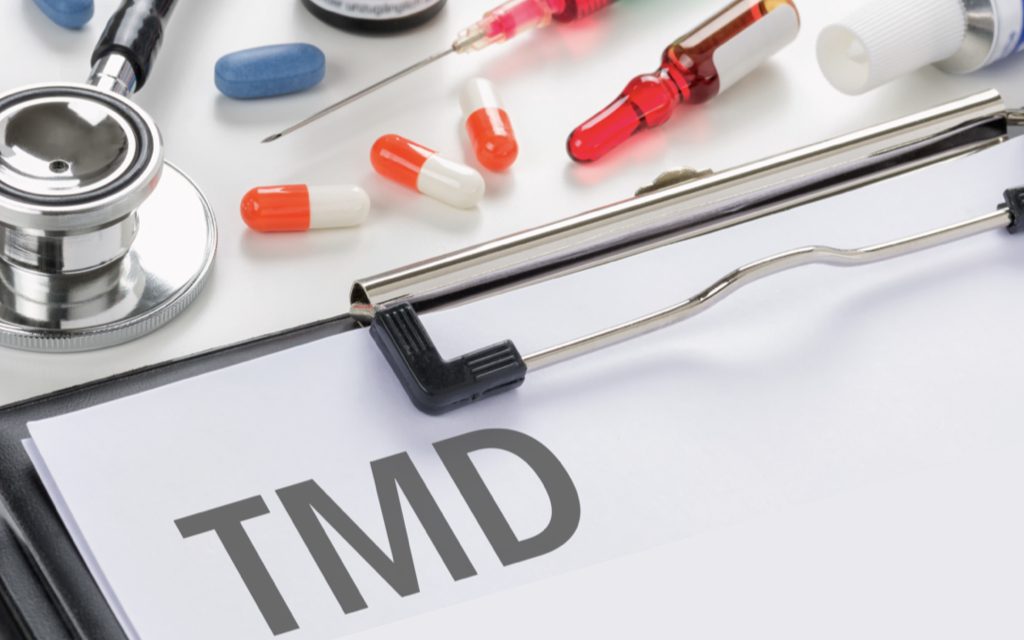Tinnitus & Temporo-Mandibular Disorder (TMD) here, Tinnitus is a spontaneous, internally generated noise (often referred to as “ringing in the ear”) that is heard in one or both ears. It is most often a subjective complaint, and the severity is dependent primarily on the patient’s description. It may occur alone or in combination with other symptoms such as Temporo-Mandibular Joint (TMJ or TMD) issues, head, neck, and back pain, dizziness (vertigo), and others.
TMD Patients more likely to report Tinnitus
Patients with Temporo-Mandibular Joint Disorders (TMJ or TMD) report a higher prevalence of tinnitus than do age-matched control groups. Also, TMD has been implicated as a common cause of tinnitus. As many as one-third (32%) of all adults experience tinnitus at some point in their lives. It is estimated that approximately 18 million Americans seek medical attention for their tinnitus. 9 million reports being seriously affected by their condition, and two million are disabled because of elusive sounds.
Medical Treatment for Tinnitus & Temporo-Mandibular Disorder (TMD)
Treatment can be frustrating for the treating physician who often prescribes tranquilizers and muscle relaxants in an effort to control muscle contraction. Currently, doctors believe that the majority of cases of tinnitus arise from anomalies in one or more of the elements of the neural chain that makes up the auditory nervous system. In recent years, expert dentists treating patients from the neuromuscular approach have had success in alleviating tinnitus. It is recommended that an ENT carries out a neurological evaluation prior to initiating neuromuscular treatment.
TMD Therapy Successful
It has been reported that TMD therapy improves tinnitus in up to 96% of patients who have TMD and co-existing tinnitus. The neuromuscular dentist has the ability to measure masticatory muscle activity at rest and in function and, by restoring the masticatory and associated muscle activity to optimal function and rest, TMD complaints of tinnitus usually resolve. When the only complaint is tinnitus with no TMD complaints, resolution of tinnitus is usually limited/poor.
Which TMD patients have the greatest improvement?
The TMD patients that have the greatest likelihood of experiencing improvement in tinnitus are:
- Age range: 18-76 years
- Lasts for a short period of time rather than continuous
- Hearing is normal
- Tinnitus began when TMD symptoms started or increased
- Tinnitus is reproduced or intensified when clenching posterior teeth as hard as possible.
There is very little understanding and knowledge in the medical and dental profession when it comes to neuromuscular treatment and its success in treating tinnitus. Seeking a professional who is trained in neuromuscular dentistry is important if one is suffering from TMD and TMD-related tinnitus. Thus clearly explained Tinnitus & Temporo-Mandibular Disorder (TMD)
– Written by Dr. Agatha Bis




